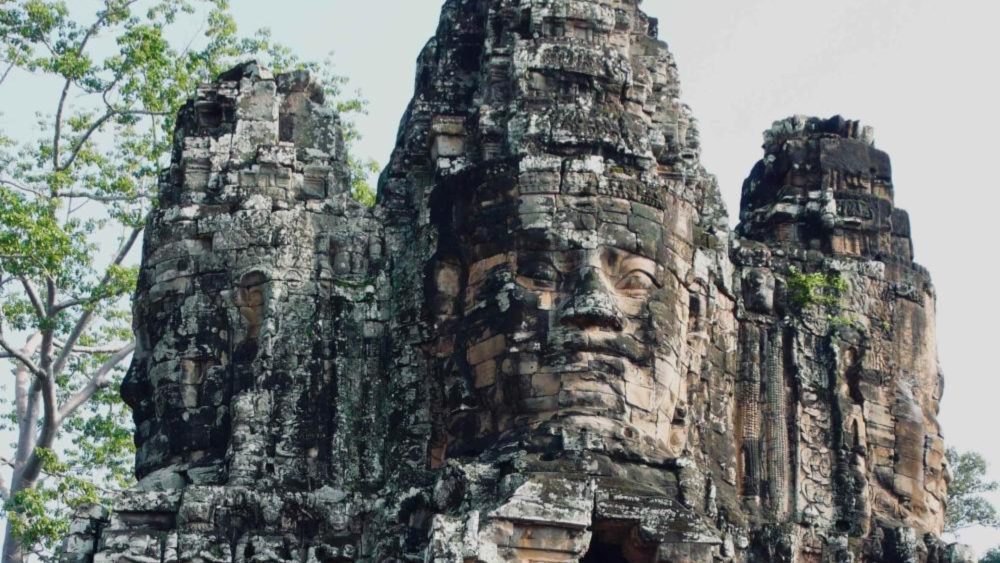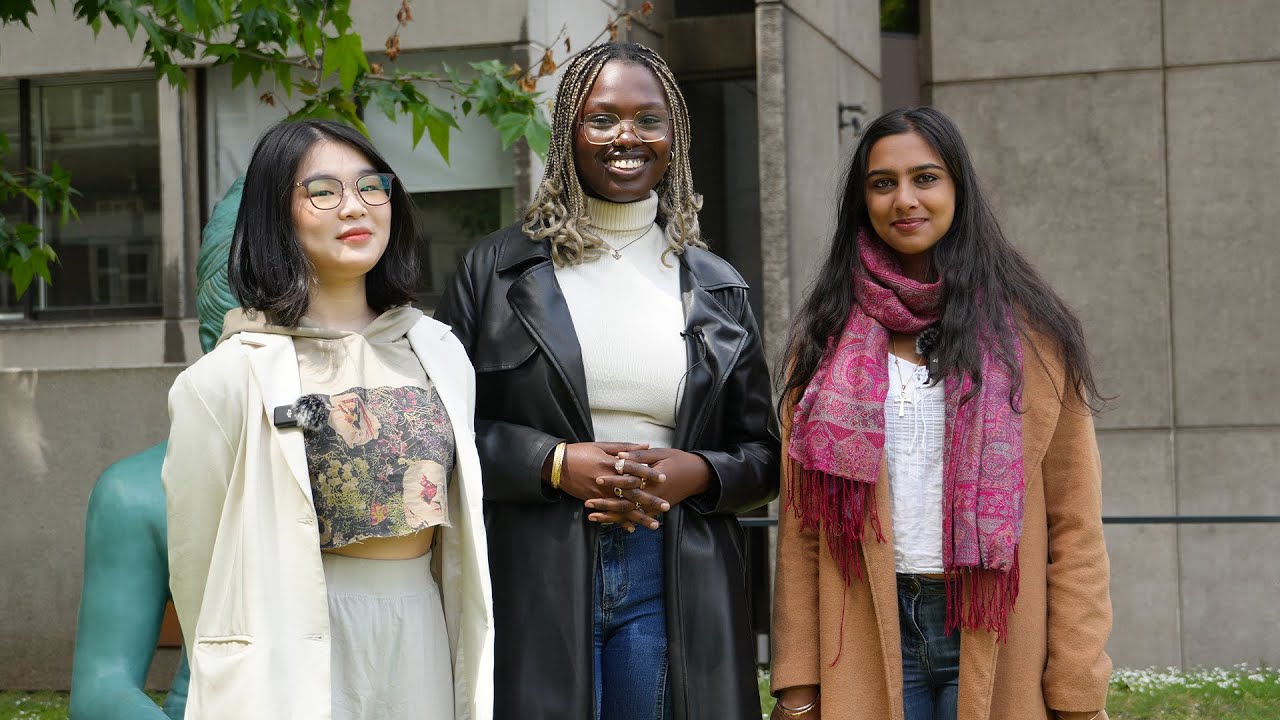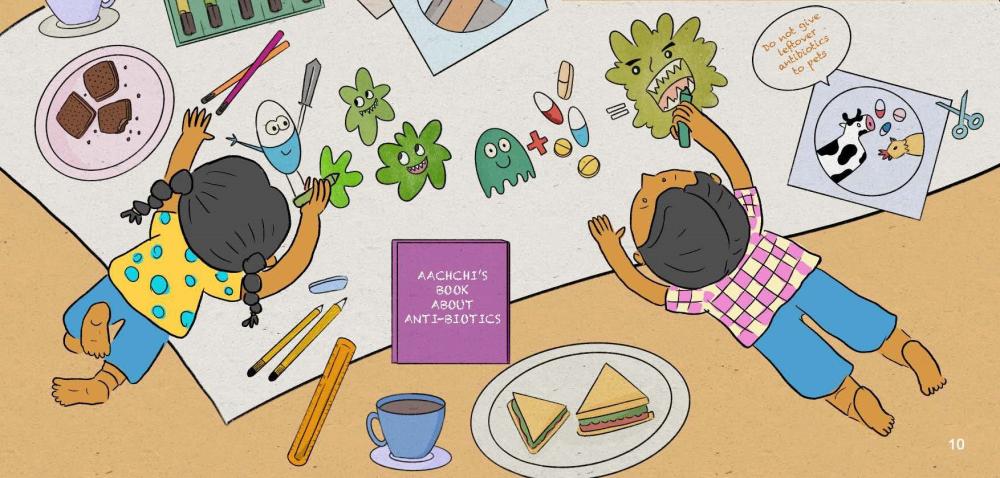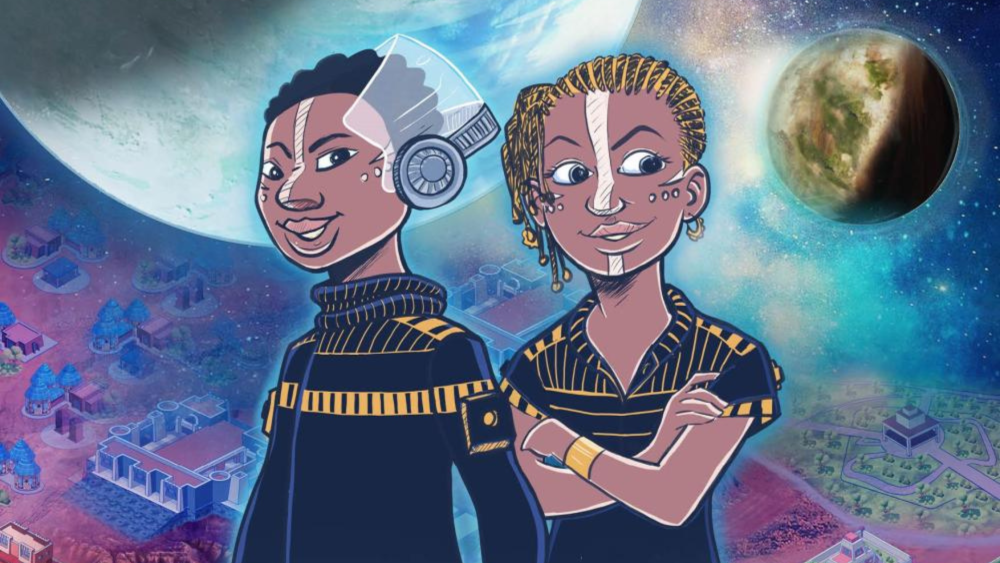Celebrating stories from SOAS research in 2024


Amid the lectures, tutorials, events and seminars that make up daily life at SOAS, our academy is producing innovative research that drives forward our vision for a better world.
Bringing ancient manuscripts to modern readers, overseeing the return of treasured artefacts and finding new ways to make critical research accessible to young audiences; here we share some of our 2024 highlights.
SOAS antiquities expert helps return looted artefacts to Cambodia
In July, a repatriation project led by Professor Ashley Thompson saw the successful return of 14 treasured artefacts to Cambodia from the Metropolitan Museum of Art in New York. This watershed moment followed extensive negotiations, facilitated by Professor Thompson, between Cambodian and US representatives over a number of years.
The return marked a turning point in Cambodia’s ongoing campaign for the restitution of antiquities, looted from the country during times of war and instability.
Major grant awarded for new mental health research centre at SOAS
In January, SOAS secured a Research England grant worth nearly £8 million to help reshape mental health care in London and globally. This has facilitated the creation of the Centre for Anthropology and Mental Health Research in Action (CAMHRA) - the first discipline-specific anthropology and mental health centre in the world.
Using anthropology’s distinctive methods and theoretical approaches, the centre will produce distinctive research knowledge and practical partnerships, supporting innovation in mental health care.
UK’s first decolonising philosophy teaching toolkit for schools launched
SOAS this year launched a ‘decolonising philosophy toolkit’, the first of its kind in western academic philosophy. For use in secondary schools, sixth forms and universities, the toolkit addresses the gaps in traditional teaching, which centres Western and European viewpoints.
Here, these thinkers are complemented with voices from around the globe, including Africa, Asia, the Middle East, Latin America and indigenous Communities. This project was led by Dr Paul Giladi and co-created by SOAS students and staff, through the SOAS student internship programme.
Community-sourcing project brings 200-year-old Malay poem back into circulation
The story of the love affair between a warrior and a handmaiden at the Majapahit court, the only two surviving manuscripts of the Malay poem “Syair Jaran Tamasa” lay unread in the British Library collection until this year. A community-sourced translation project, led by Dr Mulaika Hijjas, saw volunteers in Malaysia and Singapore transcribe the poem from its original Jawi, deciphering handwritten script and translating archaic vocabulary for the modern reader.
The new edition launched at the Kuala Lumpur Alternative Book Fair in May.
Children's storybooks developed to address antibiotic overuse in Sri Lanka
Antimicrobial resistance (AMR) is one of the greatest threats to global health and development. But in key AMR hotspots, particularly in Asia, public awareness needs to be raised. A new research project focusing on Sri Lanka, led by Dr Risa Morimoto, is helping to tackle this issue through specially designed storybooks, comics and film.
Launched in October, these materials promoting responsible antibiotic use are drawing attention to this danger to public health among key social groups.
Report reveals barriers faced by newly-recognised refugees in the UK
“People think refugee status gives you wings, but it doesn't even give you arms.” These were the words of one interviewee featured in Dr Anna Lindley’s report on barriers faced by newly-recognised refugees in the UK, published this year. Far from the hand-outs and benefits decried by hard-line voices on immigration, Dr Lindley’s research highlights the stress and isolation faced by those seeking to create a new life following the recognition of their refugee status.
Usawa: The mobile game tackling descent-based slavery
Harnessing new technologies to shed light on a complex social issue, Usawa aims to foster awareness and inspire generational change among young gamers in Africa. The result of an innovative collaboration between Dr Marie Rodet, Malian NGOs and pan-African creative industries, the mobile game draws attention to the legacy and current-day effects of descent-based slavery in Africa, incorporating first-hand accounts from communities in Mali.
SOAS Professors appointed to G20 Group of Experts on climate action
This year, SOAS Professors Daniela Gabor and Professor (just add title) Ulrich Volz were part of an expert group, appointed by the Brazilian G20 Presidency, to provide recommendations to the G20 Taskforce on Global Mobilization Against Climate Change. Their report, presented to the IMF and World Bank, sets out a transformative framework to reconcile economic growth with urgent climate action and limit global warming to 1.5ºC above pre-industrial levels.
Documentary exploring history of the kora wins prestigious award in Berlin
A documentary film produced by SOAS Emeritus Professor of Music Lucy Durán won the Best Artist Film (Feature) Award at the prestigious Berlin Indie Film Festival 2024. Titled “Ballaké Sissoko, Kora Tales”, the film highlights Professor Durán’s decades of research on the West African kora instrument and includes generations of kora players at home and abroad. Shot on location in 2022 in Mali, Senegal and Gambia, the documentary features Ballaké, a globally recognised kora musician.
SOAS wishes all of our staff, students, alumni and friends a happy and peaceful winter break. To find out more about SOAS's ongoing research projects, visit 'Research' on this site.






